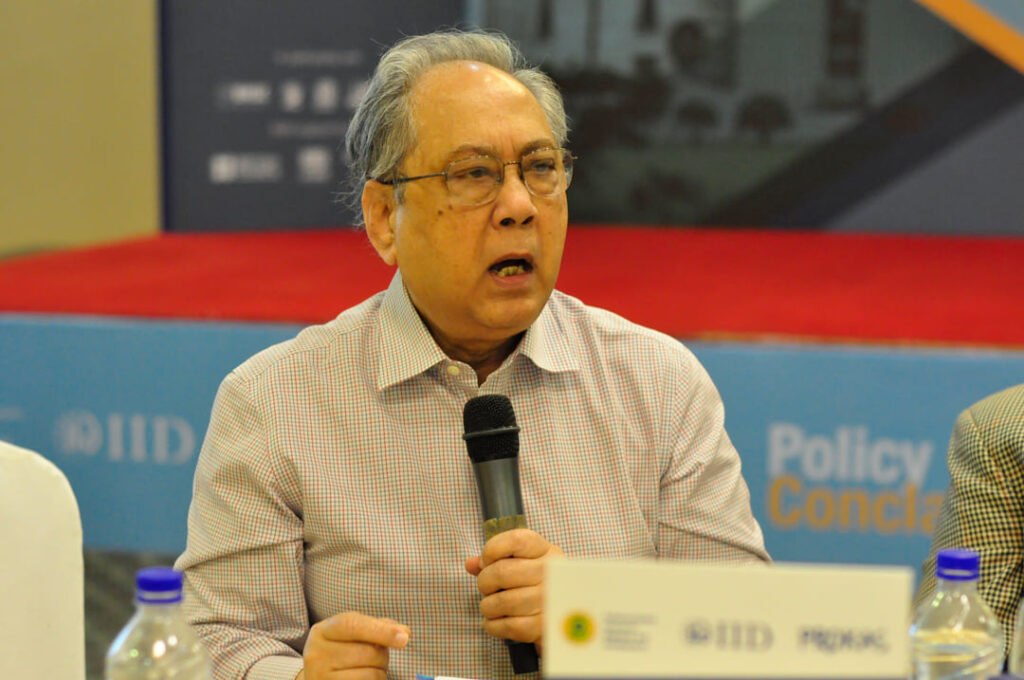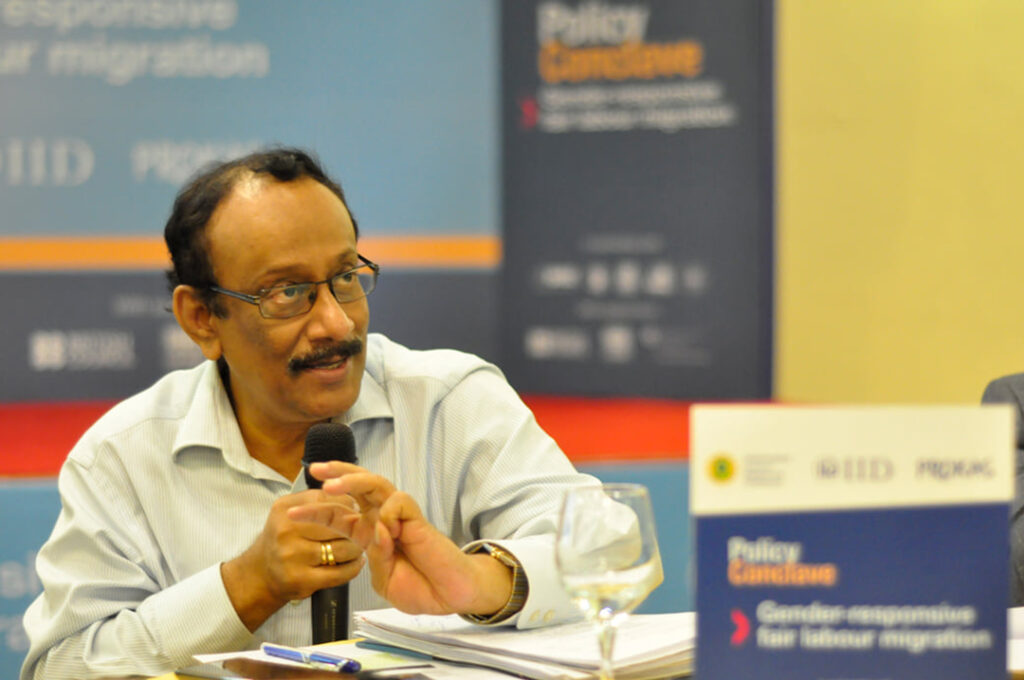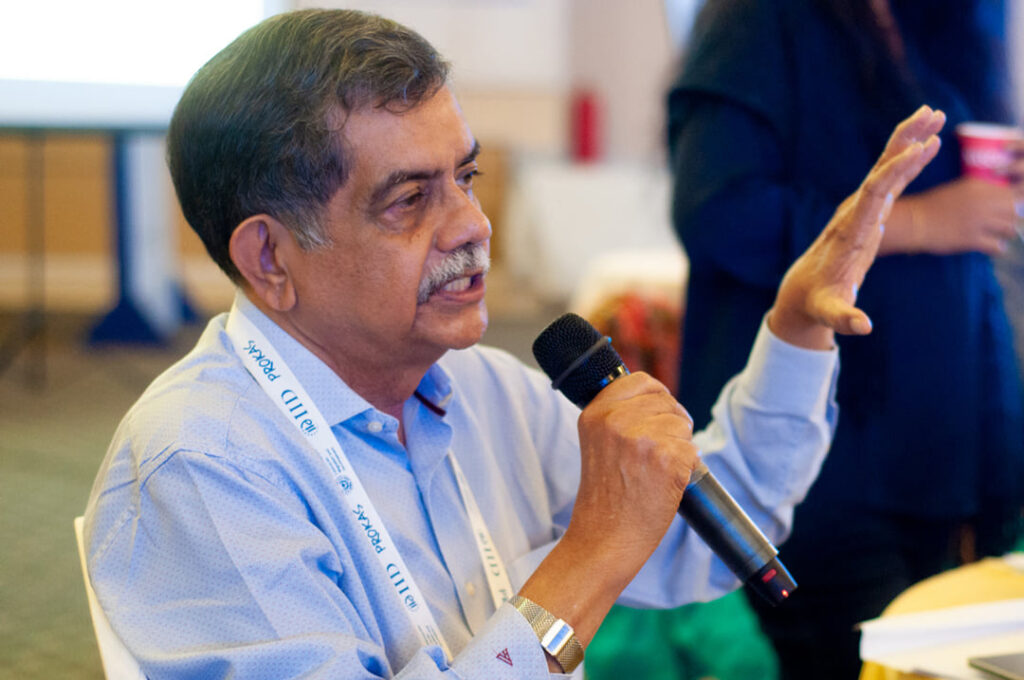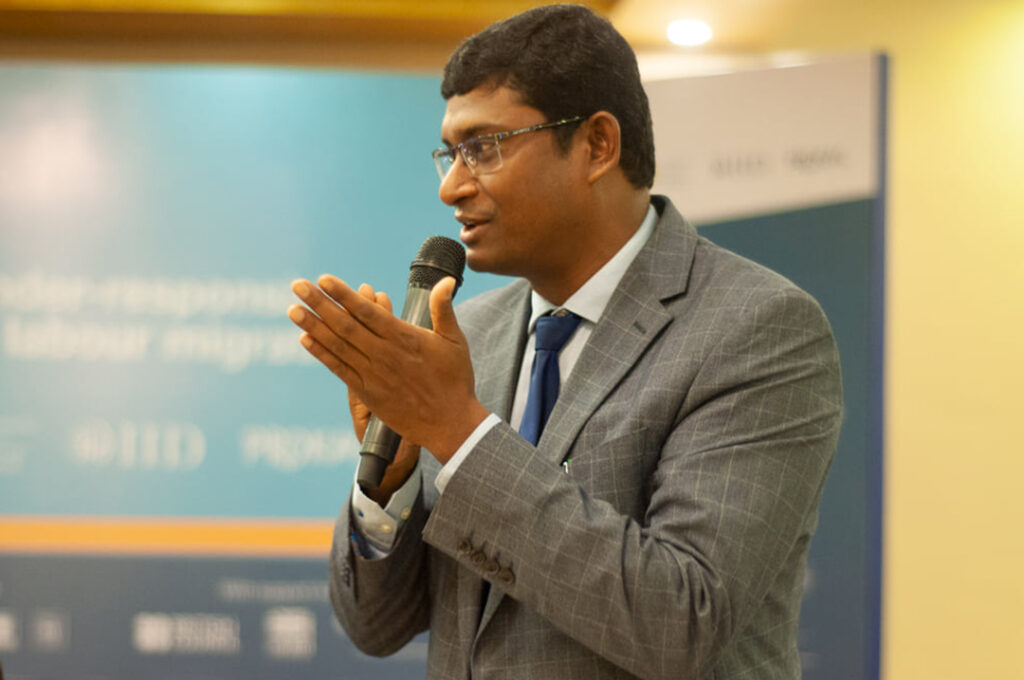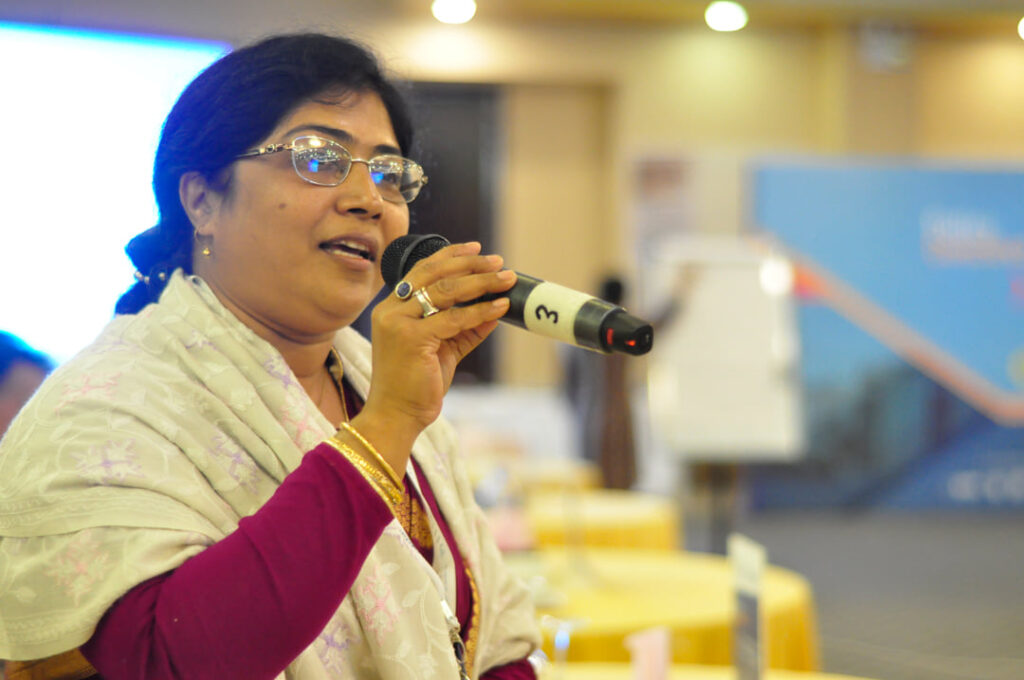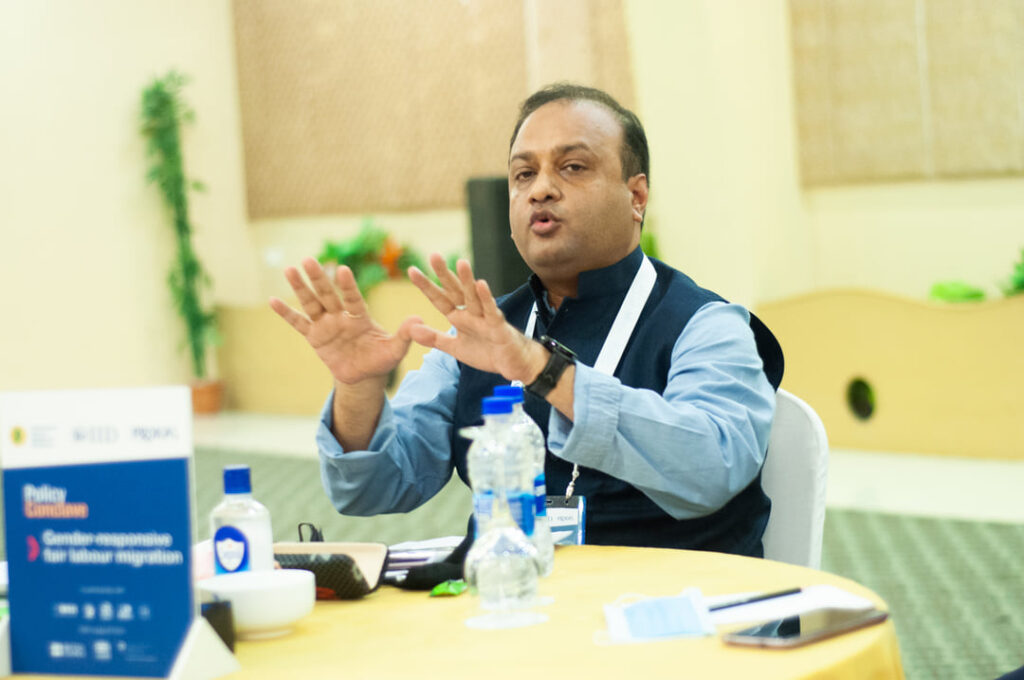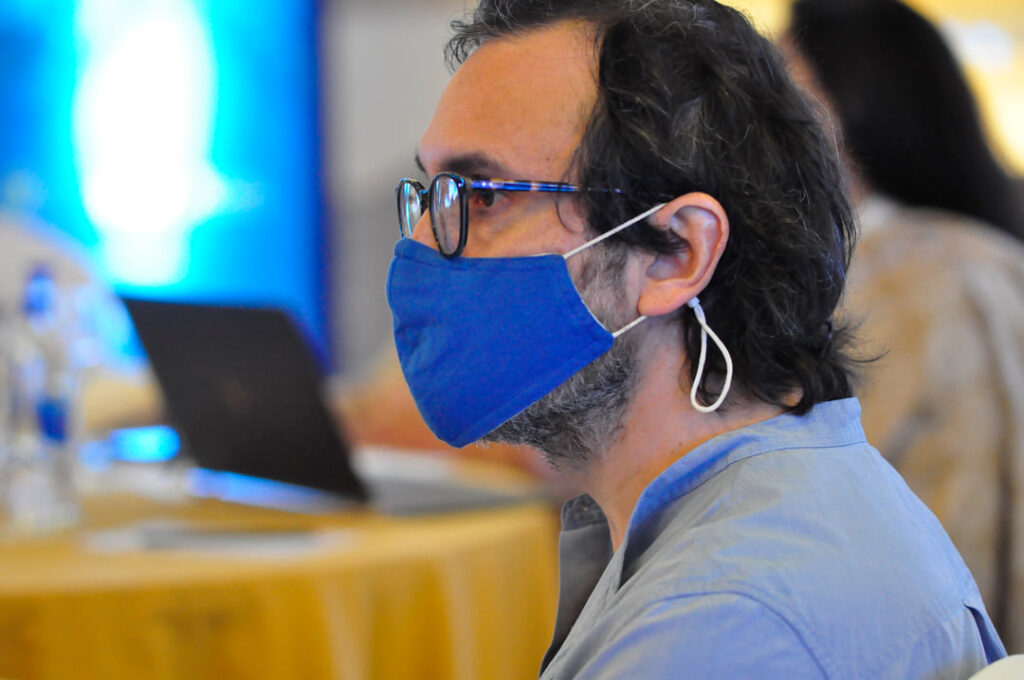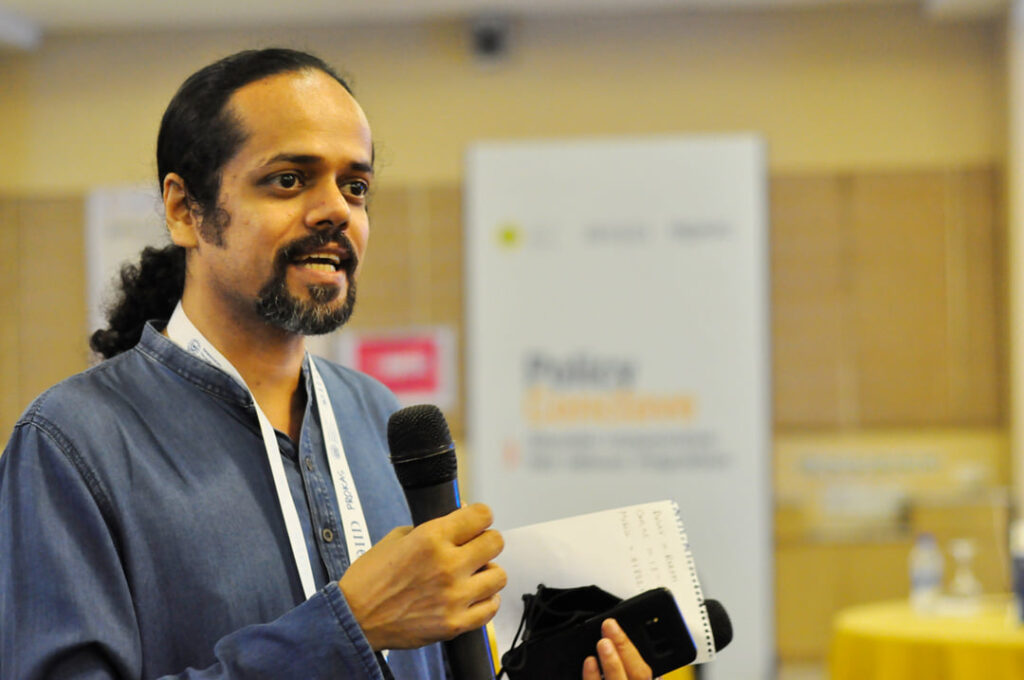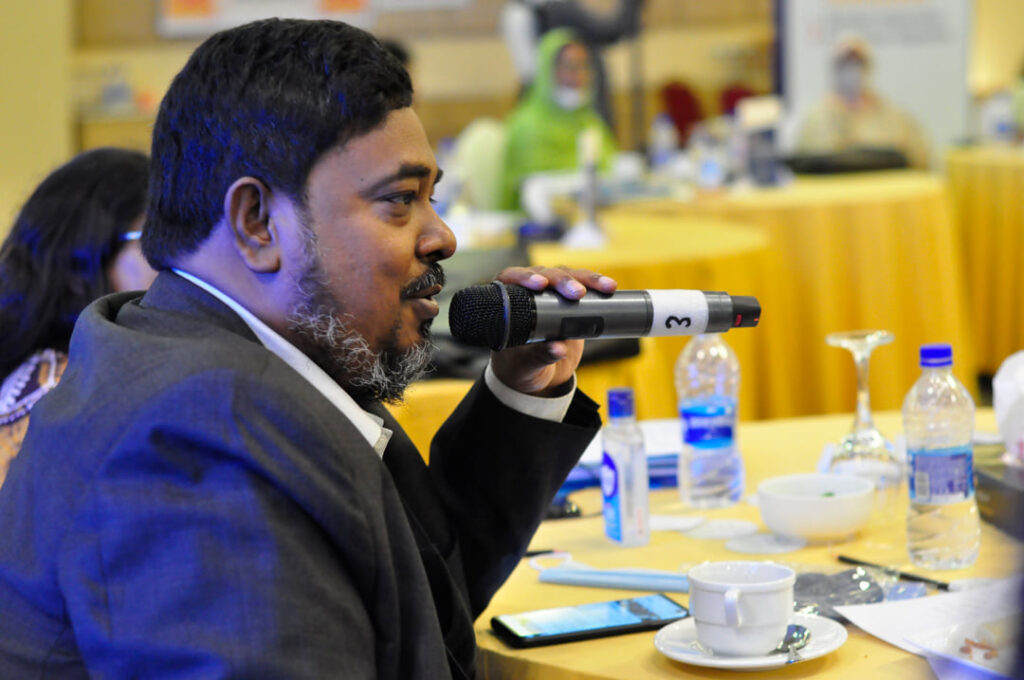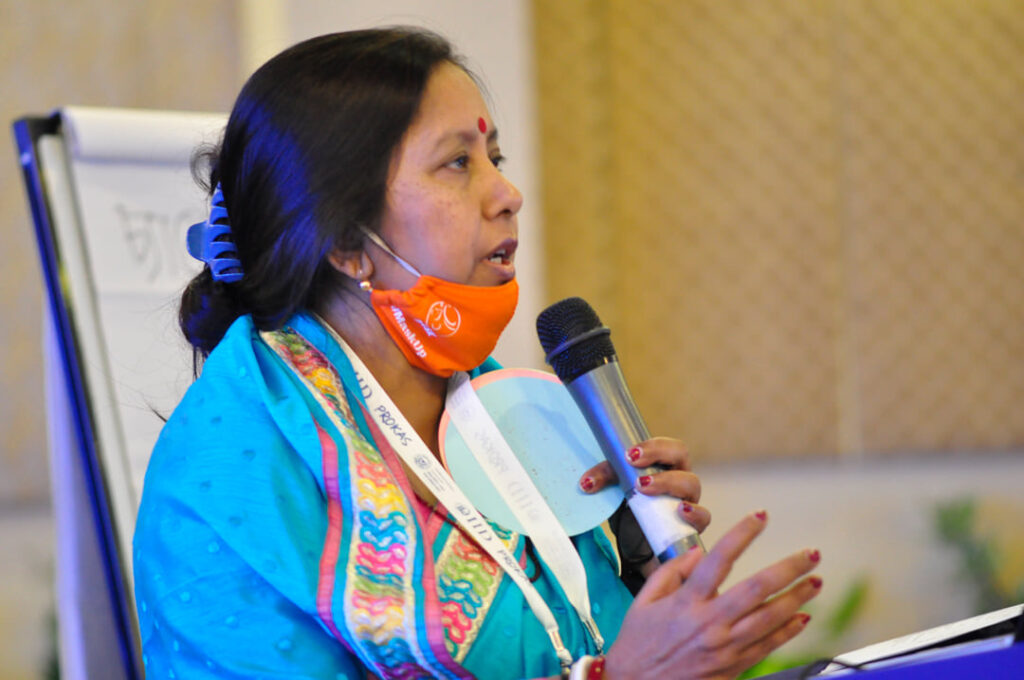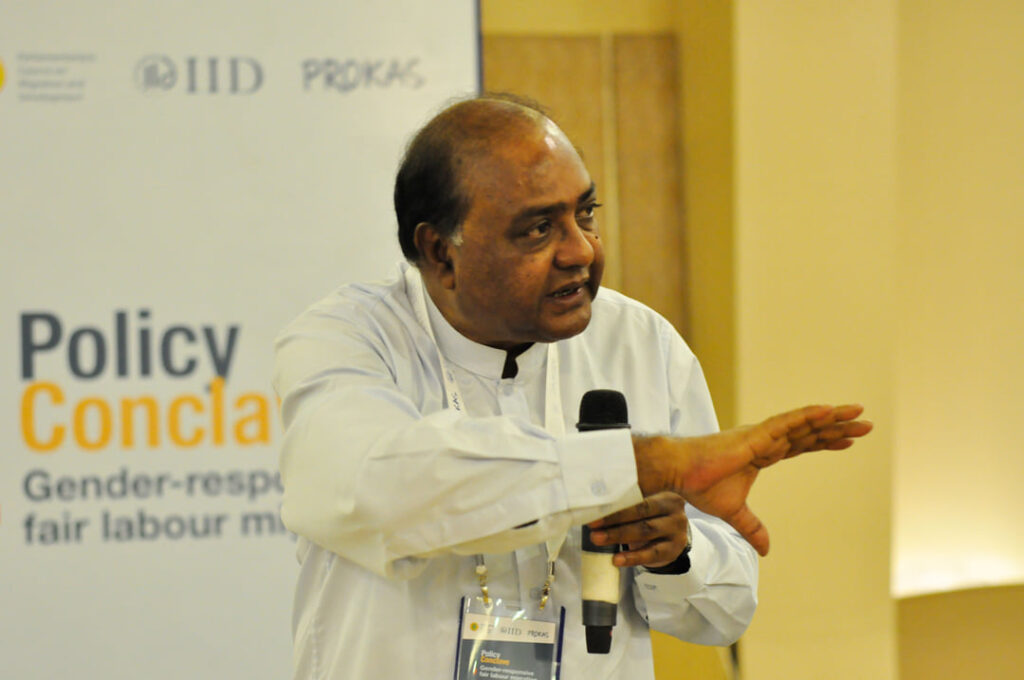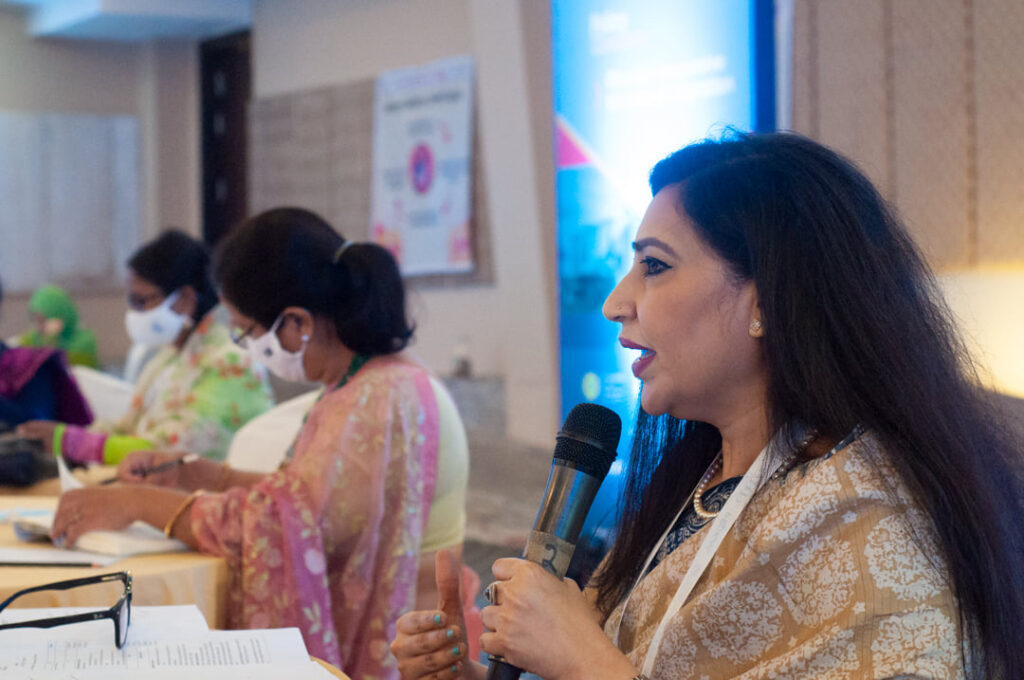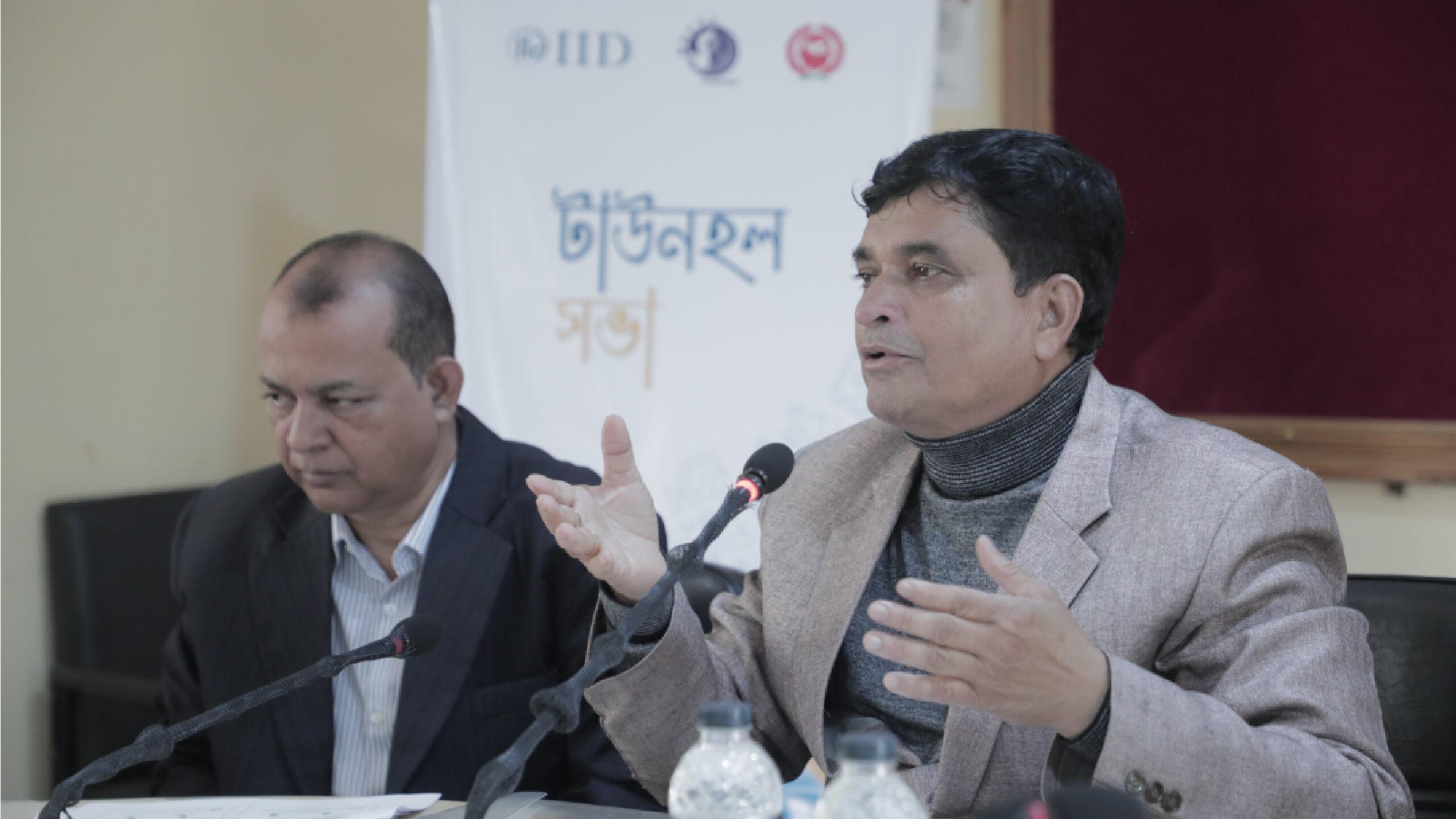Bangladeshi migrant workers are being exploited and are being exposed to wholesale abuse of their human rights in labour destination countries. From 25 to 27 February 2021 an event titled “Policy Conclave on Gender-Responsive Fair Labor Migration” was held in Cox’s Bazar, Chittagong, where parliamentarians and various civil society organizations held discussions and strategies on forming better gender-responsive migration laws to help the migrant workers of Bangladesh. The highlight of this event was that for the first time, IID in partnership with other CSOs was able to bring together 14 parliamentarians to openly discuss the issues faced by migrant workers especially women in the face of the ongoing Covid-19 pandemic.
Migrant workers from Bangladesh face a host of issues in the labour destination countries which range from facing domestic violence and sexual harassment to severe human rights abuse and downright exploitation. These problems stem from the fact that Bangladeshi migrants, who are mostly women, do not have access to proper education and training. Due to their hectic lives, the policymakers of Bangladesh are often not in touch with the grassroots reality of the migrant workers’ issues. To help them formulate fairer migration laws, IID with help from other civil society organizations have organized a policy conclave where the migrant workers’ issues can be openly discussed and the foundation for actionable solutions can be laid, by helping bring these issues to the attention of the parliamentarians and policymakers of Bangladesh.
As the world’s 6th largest labour-sending country and the 8th largest remittance-receiving country, remittances sent back by its migrant workers help in the economic development of Bangladesh. Yet migrant workers, returnee migrants, and their families do not receive the appropriate support from the government. Due to the Covid-19 pandemic, many migrant workers and in particular the females have faced many issues in the labour receiving countries. These issues include exploitation, wage theft, physical, sexual and psychological abuses. This event was held to inform the policymakers about these issues so they can formulate better laws as well as helping them to foster improved relationships with the CSOs.
Held for three days, the event was divided into topic-specific sessions to discuss the issues that have beleaguered the migrants such as. Day-1 saw the participants attending an informal dinner and networking session. Organizers introduced the event and briefed on what to expect from the following two days.
The next day (Day-2) the formal inaugural session was held with a welcome speech by Tom Miscioscia, Country Director, British Council Bangladesh and Anisul Islam Mahmud, MP, Chairman, Standing Committee on Ministry of Expatriates Welfare and Overseas Employment, Mahjabeen Khaled, Secretary Gen. of Caucus gave an overview on the Parliamentarians Caucus, while Md. Shahidul Haque, Former Foreign Secretary & Advisor, IOM talked gave a synopsis on migration. Giorgi Gigauri, Chief of Mission of IOM, Javed Patel, Deputy High Commissioner, British High Commission in Bangladesh, Suzanne Muller, Head of Cooperation and Deputy Head of Mission, Embassy of Switzerland in Bangladesh were connecting via Zoom and gave their speeches.
The first session of the event was on the topic of Gender Responsiveness in Policy Advocacy which is important since nearly 80% of female workers are migrating as domestic aides, yet this segment of the workforce remains outside the purview of the current policies and programs of the government. Their language and information barriers restrict them from availing emergency services and exposes them to exploitation. Awareness programs and gender-responsive migration policies are the only way to address issues of gender inequality and vulnerabilities of women migrant workers. Dr. Tasneem Siddiqui, Chair, RMMRU, Shirin Lira, Sr. IBP Manager and Gender & Social Inclusion Adviser, Syeed Ahamed, CEO, IID acted as facilitators with timely interventions by the Members of Parliament.
The next session was on Migration Governance and Justice. The keynote speakers Shameem Haider Patwary, MP, and Farida Yasmin, Director, BOMSA, and Prof C.R. Abrar, Executive Director, RMMRU spoke about inserting a provision of penalty in the current migration laws and increasing border monitoring at departure points are crucial in stopping the exploitation of migrant workers by unscrupulous brokers, and preventing the manpower recruiting agencies from illegally using sub-agents. To ensure the migrant workers’ rights, the practice of online mediation with the recruitment agencies must be implemented. Arbitrations and mediations undertaken by BMET must be impartial, gender-friendly and migrant workers-friendly. This discussion was chaired by Mujibul Haque Chunnu, MP, Chairman, Standing Committee on Ministry of Labor and Employment.
Budgeting for Fair Labor Migration session chaired by Tanvir Shakil Joy, MP. Panel keynote speakers Syeed Ahamed and Sumaiya Islam, ED, BNSK, Syed Saiful Haque, Chairperson, WARBE discussed that at present, the budgeting process is plagued by inter-ministerial conflict and a lack of coordination and cooperation. The budgeting process must ensure gender equality and gender responsiveness to accommodate the special needs of female migrant workers. In particular, prioritized allocations must be made in the migration budget for high-quality training for migrants in overseas jobs, implementation of proper reintegration plan for returnee migrants, and ensuring the welfare of migrant workers already employed in different countries.
The following session on Global Discourse on Migration was chaired by Shameem Haider Patwary, MP. Keynote speaker Md. Shahidul Haque, Ex Foreign Secretary & Advisor, IOM and panel speakers Dr. Tasneem Siddiqui, Chair, RMMRU, Syed Saiful Haque, Chairperson, WARBE DF spoke about how Covid-19 has rendered the global job market even more dynamic than before. To remain competitive, Bangladeshi migrant workers will need skill development programs, in addition to replacing all current bilateral agreements with multilateral agreements which are better at ensuring the rights of migrant workers. The Finance and Planning Ministries must work together to regulate the migration sector. The SAARC member countries should coordinate and collaborate to properly implement the initiatives of the GCM.
The third and last day of the event started with a brief refresher by Shirin Lira, PROKAS. Anisul Islam Mahmud, Chairman, Standing Committee on Ministry of Expatriates Welfare and Overseas Employment chaired the session The Other Face of Globalization where a discussion took place about the perils that globalization has brought in the lives of Bangladeshi migrant workers. Of note was the necessity of generating data on returnee migrants, a common guideline for case-by-case evaluation of unpaid dues of involuntarily returned migrant workers, and inclusion of the distressed families of returnee migrant workers in public assistance schemes. The media and press must be sensitized not to securitize migration. Lastly, the government should actively advocate at the global migration forums for the de-securitisation of migration. Dr. Tasneem Siddique spoke as the facilitator and keynote speaker in addition to suggesting recommendations to the MPs for a plan of action.
At the next discussion session titled Future of Work and Youth Skills, Arifur Rahman, Chief Executive, YPSA spoke with regular interventions by Members of Parliament. The discussion sessions ended with the last topic Areas of works and opportunities for parliamentarian’s engagement.
At the conclusion Gerry Fox, Team Leader, PROKAS, British Council gave his remarks via Zoom. Shahidul Haque, Former Foreign Secretary & Advisor, IOM and Shameem Haider Patwary, Chair, Parliamentary Caucus reflected on the event’s proceedings and spoke about the importance of the way forward. Anisul Islam Mahmud, MP and Md. Mujibul Haque, MP expressing that they had learnt many new things about the migrant workers’ issues and that this will help them to make fairer laws for the betterment of the migrant workers. The parliamentarians articulated improved solidarity with the CSOs, describing their ongoing relationship as positive and growing.
Among others Anwarul Abedin Khan, MP, Gloria Jharna Sarker, MP, Sayeda Rubina Akter, MP, Rana Mohammad Sohail, MP, Rowshan Ara Mannan, MP, Md. Nurul Islam Talukder, MP, Shaimum Sarwar Kamal, MP, Md. Sanowar Hossain, MP, Asheq Ullah Rafiq, MP, Jinnatul Bakia, MP, Md. Shafiqul Islam Shimul, MP, Marina Sultana, RMMRU, Jasiya Khatoon, WARBE DF, Abdus Sabur, YPSA, and Syed Amin Al Anas, PROKAS attended the Policy Conclave.
The event facilitated a healthy exchange of ideas and information between the policymakers and the CSOs on how to improve the Bangladeshi migrant workers’ working and living conditions and safeguard their rights in the labour destination countries by formulating better and more gender-responsive laws.

